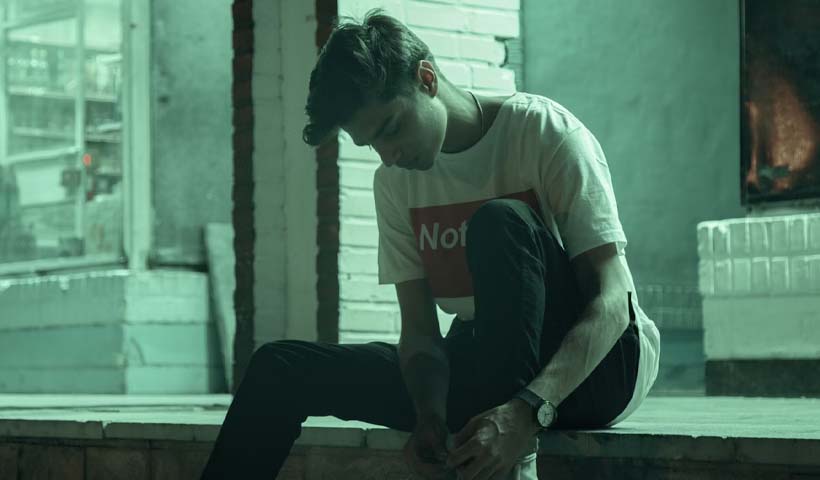Human beings are social beings, awarded with conscience and with the ability to ‘emote’ which connects us all in deeper levels. The virtues of compassion and empathy stem from the upbringing provided since our childhood; the space to express completely, the voice to raise concerns on personal selves without hesitation. This basic requirement of an individual can be hampered as alas in modern day and age, gender counts higher than being a person.
Male well-being and mental health have emerged as an alarmingly neglected subject, affecting people’s contemporary lives, personal relations, healthy work productivity and illegitimate bias in treatment on emotional grounds. While mental illnesses affect both men and women, the prevalence of mental illnesses in men is often lower than women. Men with mental illnesses are also less likely to have received mental health treatment than women in the past year. However, men are more likely to die by suicide than women, according to the Centers for Disease Control and Prevention. This highlights the grotesque consequence of ignorance towards healthy patterns of expression and work-life balance.
The crux of this issue could be assessed when we sight the history of male society, conduct and average role and the eventual influence on their ‘collective persona of identity as a gender’. Since the later Vedic period, the rise of males in absolute monarchy and absence of females in decision-making and independent roles as per then deteriorating social construct, which is unfortunate in it’s own right. Since then, we have witnessed prominent involvement of men in grotesque matters of war and blood, crude work environment, pressure of feeding a family’s material needs and overall an ecosystem where repressed emotion and aggression in reactions are encouraged. This lands us on the ‘Breadwinner’ complex, the responsibility of becoming the pillar of financial support to the family. In the present day and age, where mind is prioritized over physical strength, cognitive skills over tactics and mental health over pseudo-honor; the stigmas around an average male need to be melted down. A peaceful person requires the ability to have pleasure, the enjoyment of lunar things like poetry, art and having softness, without any prejudice.
“Mard ko dard nahi hota”, a classic dialogue became an emblem for male camaraderie in India, cites the normalization of neglecting even a crucial sensation as ‘pain’ to symbolize the restriction over honoring personal emotions. Unfortunately, such small persuasions and hints in the environment affects a child’s mind to entangle him in a vicious cycle of validation to become ‘an ideal man’.
The November that passed marked Men’s Health Awareness Month to raise attention on prostate cancer, testicular cancer, mental health, and suicide prevention. The annual day invited men all around the world to grow mustaches and facial hair for 30 days to be signified as a walking, talking billboard for men’s health. The awareness month thereby encourages promoting health among men and teaches young boys about healthy habits. The stats are burdening as it is estimated that men die 5 years earlier at higher rates than women especially due to cancer, heart disease, or unintentional injuries. “This macho male image of, ‘I’m tough, I don’t need to reach out for help, I don’t need to show my emotions, I don’t need to let people know what’s going on,’ and again, this has come through generations,” says Mark Sigmund, a mental health therapist at Retreat Behavioral Health. He adds that this allows the male patients to even skip out their regular visits, which aligns with the discussion earlier. Such isolation on emotional and mental levels is the key to depression that overtime transforms into suicide. As men rarely seek out help, this raises their risk of mental ailments like depression, anxiety, substance abuse, and subsequent suicide; as men are almost 4 times more likely than women to commit suicide. Moreover, all men above the age of 85 years and gay or transgender men below 25 years are at the even highest risk. Thus, healthy consultations with counsellors and psychiatrists with emphasizing the essence of freedom of expression on the levels of relationships, partners, workplaces and spiritual selves need to be encouraged.
Dear men, it is beautiful to be vulnerable, strong to ask for support, compassion in asking for help and very humane to talk about feelings; a ‘cry’ can be a necessary instrument to let our burdens out in this chaotic world. Thus, a society of light needs to be free of such dilemmas to maintain the balance in the aspects of ‘productivity’ and ‘prosperity’.

Please Read the Article Submission and Our Editorial Policy for More Information Regarding this user account!!
Discover more from NEWSOFX
Subscribe to get the latest posts sent to your email.


